
Deva: The Heart of Transylvania's History
Deva, nestled in the heart of Transylvania, Romania, is a city rich in history and culture. With its picturesque landscapes and captivating landmarks, Deva is a perfect destination for those looking to immerse themselves in the charm of Eastern Europe. The city is home to the iconic Deva Fortress, perched majestically on a volcanic hill, offering panoramic views of the surrounding valleys and the Mureș River. This historic fortress, dating back to the 13th century, is a testament to the city's strategic importance over the centuries. Walking through the streets of Deva, visitors will encounter a blend of ancient and modern architecture, reflecting the city's evolution through time. The Magna Curia Palace, a baroque masterpiece, and the picturesque Bethlen Castle are must-see attractions that showcase Deva's architectural heritage. The city also boasts several museums, including the Museum of Dacian and Roman Civilisation, which provides a deep dive into the region's rich history and cultural evolution. Nature lovers will find Deva a delightful escape with its lush parks and nearby natural reserves. The Retezat National Park, just a short drive away, offers stunning hiking trails, crystal-clear lakes, and diverse wildlife. Visitors can also explore the rich flora and fauna of the Simeria Arboretum, one of the oldest and most diverse botanical gardens in Romania. Deva's vibrant cultural scene is reflected in its festivals and events. The city hosts various cultural festivals, including traditional music and dance performances, which provide a glimpse into the local customs and traditions. With its welcoming atmosphere, historical depth, and natural beauty, Deva is a hidden gem waiting to be discovered.
Local tips in Deva
- Visit the Deva Fortress early in the morning to avoid crowds and enjoy the best views.
- Take a guided tour of the Magna Curia Palace to learn about its interesting history and architecture.
- Wear comfortable shoes for exploring the city's historical sites and natural parks.
- Try local Transylvanian dishes at traditional restaurants for an authentic culinary experience.
- Check the local event calendar for cultural festivals and performances during your visit.
Deva: The Heart of Transylvania's History
Deva, nestled in the heart of Transylvania, Romania, is a city rich in history and culture. With its picturesque landscapes and captivating landmarks, Deva is a perfect destination for those looking to immerse themselves in the charm of Eastern Europe. The city is home to the iconic Deva Fortress, perched majestically on a volcanic hill, offering panoramic views of the surrounding valleys and the Mureș River. This historic fortress, dating back to the 13th century, is a testament to the city's strategic importance over the centuries. Walking through the streets of Deva, visitors will encounter a blend of ancient and modern architecture, reflecting the city's evolution through time. The Magna Curia Palace, a baroque masterpiece, and the picturesque Bethlen Castle are must-see attractions that showcase Deva's architectural heritage. The city also boasts several museums, including the Museum of Dacian and Roman Civilisation, which provides a deep dive into the region's rich history and cultural evolution. Nature lovers will find Deva a delightful escape with its lush parks and nearby natural reserves. The Retezat National Park, just a short drive away, offers stunning hiking trails, crystal-clear lakes, and diverse wildlife. Visitors can also explore the rich flora and fauna of the Simeria Arboretum, one of the oldest and most diverse botanical gardens in Romania. Deva's vibrant cultural scene is reflected in its festivals and events. The city hosts various cultural festivals, including traditional music and dance performances, which provide a glimpse into the local customs and traditions. With its welcoming atmosphere, historical depth, and natural beauty, Deva is a hidden gem waiting to be discovered.
When is the best time to go to Deva?
Iconic landmarks you can’t miss
Castelul Corvinilor (Corvins' Castle)
Discover the historical treasures of Corvins' Castle, a magnificent Gothic-Renaissance landmark in Hunedoara, Romania, rich in tales and breathtaking architecture.
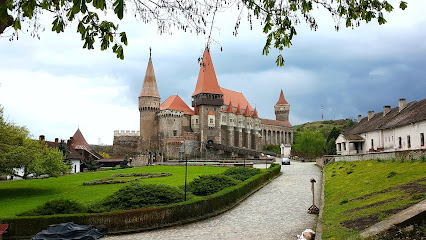
The Fortress of Deva
Explore the stunning Fortress of Deva, a historical landmark offering breathtaking views, rich history, and a captivating experience for all visitors.
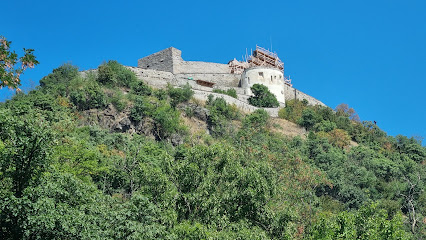
Citadel Park
Discover the lush landscapes and historical charm of Citadel Park, a state park in Deva, Romania, where nature and history intertwine beautifully.
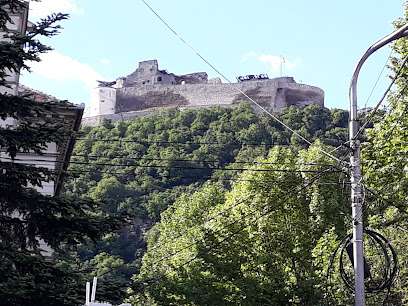
Arboretum Park Simeria
Explore the serenity and botanical wonders of Arboretum Park Simeria, a perfect getaway for nature lovers and peace seekers.
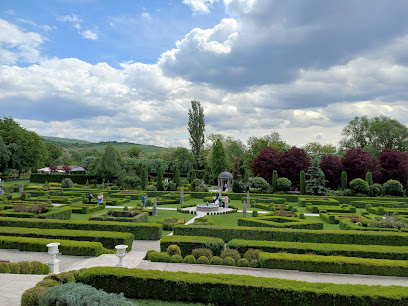
Aqualand
Dive into adventure at Aqualand in Deva, a water park featuring thrilling slides, serene pools, and fun for the whole family.
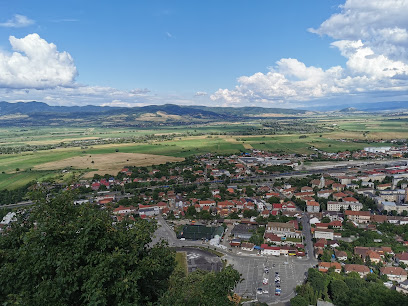
Ascensor Cetatea Devei
Discover the stunning views from Ascensor Cetatea Devei, a mountain cable car journey to the historic Deva Fortress in Romania.
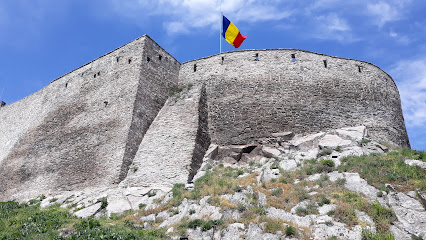
Grizzly Restaurant
Experience the rich flavors of Deva at Grizzly Restaurant, where culinary passion meets exceptional service in a cozy atmosphere.
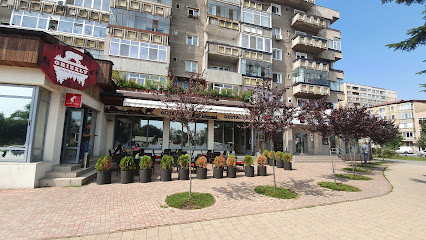
Statue of Decebal
Discover the Statue of Decebal: A towering tribute to Romania's ancient history, offering breathtaking views and rich cultural insights.
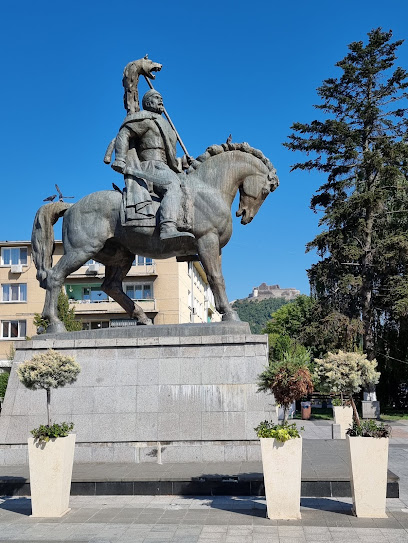
Conacul Archia
Experience luxury and nature at Conacul Archia, a premier hotel and event venue in Deva, Romania, with equestrian facilities and delightful dining.
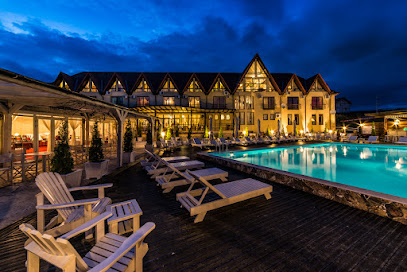
The Museum of Dacian and Roman Civilisation
Explore the rich heritage of the Dacian and Roman civilizations at the Museum of Dacian and Roman Civilisation in Deva, Romania.
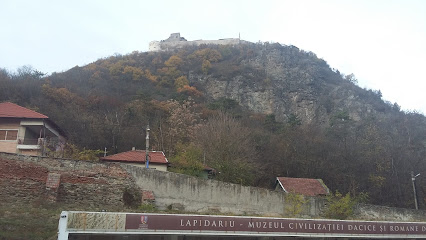
Măgura Uroiului
Experience the breathtaking beauty of Măgura Uroiului, a serene nature preserve perfect for adventure and relaxation in the heart of Romania.
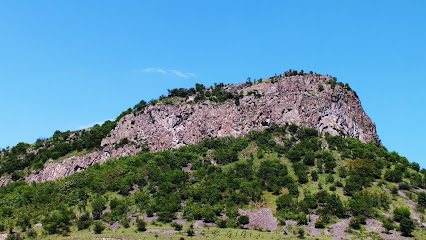
Casina
Experience the flavors of Romania at Casina, Deva's beloved restaurant offering traditional and modern dishes in a cozy setting.
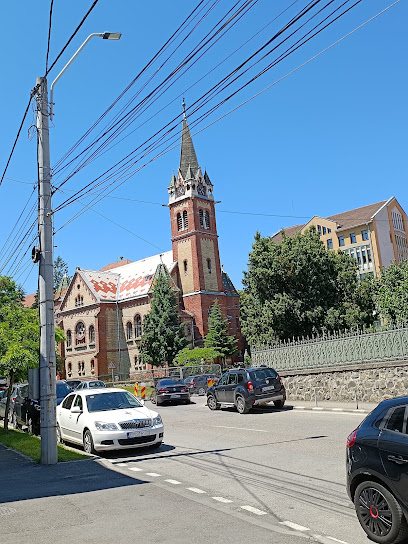
Art Theater Deva
Discover the cultural heartbeat of Deva at Art Theater Deva, where performing arts come alive in a stunning venue.
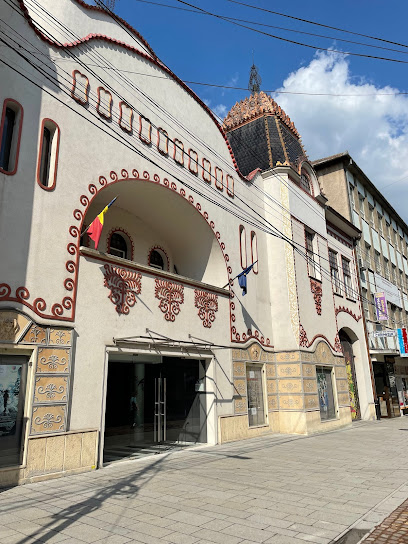
Villa Brussels
Discover the charm of Villa Brussels, a tranquil hotel in Deva offering comfort and easy access to historical sites and natural beauty.
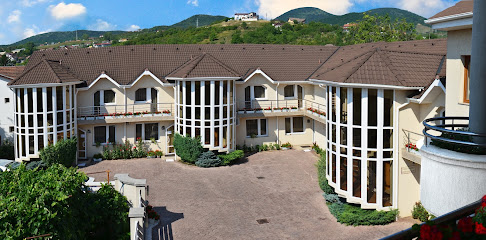
Aurel Vlaicu Memorial House
Explore the Aurel Vlaicu Memorial House, a captivating museum celebrating Romania's aviation pioneer with rich history and beautiful surroundings.
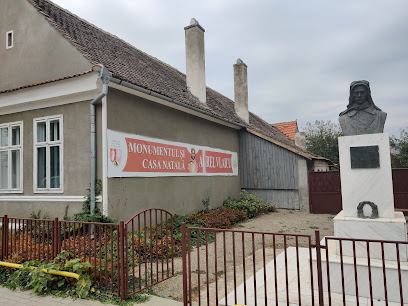
Unmissable attractions to see
Castelul Corvinilor (Corvins' Castle)
Explore the breathtaking Corvins' Castle in Hunedoara, Romania, a medieval masterpiece filled with history, legends, and stunning architecture.
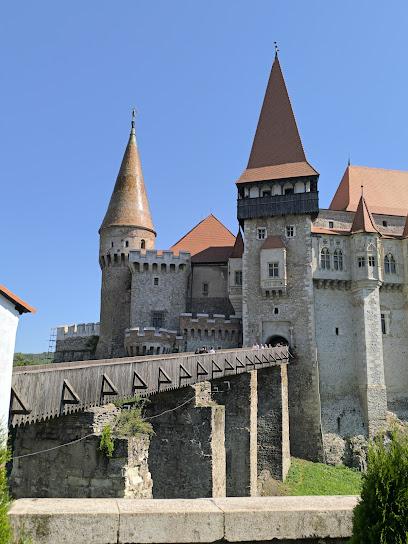
The Fortress of Deva
Discover the rich history and captivating views at the Fortress of Deva, a premier tourist attraction in Romania.
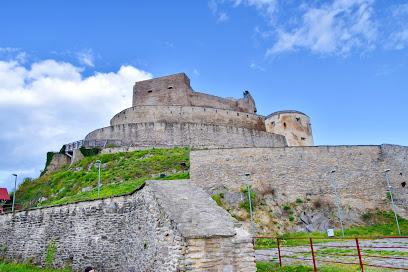
Orașul Antic Sarmizegetusa Ulpia Traiana
Explore the captivating ruins of Sarmizegetusa Ulpia Traiana, a UNESCO World Heritage site that reveals the grandeur of Roman Dacia.
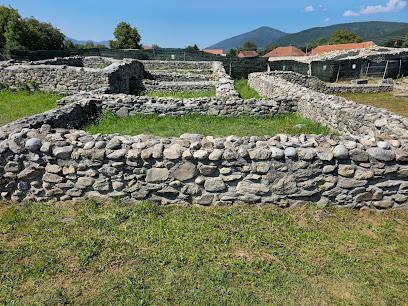
Citadel Park
Explore the serene Citadel Park in Deva, where lush landscapes meet historical charm, perfect for relaxation and adventure.
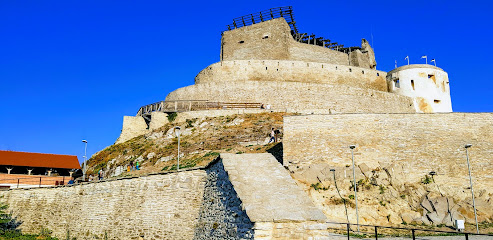
Arboretum Park Simeria
Explore the enchanting Arboretum Park Simeria, a botanical paradise featuring diverse flora and tranquil landscapes in Romania.
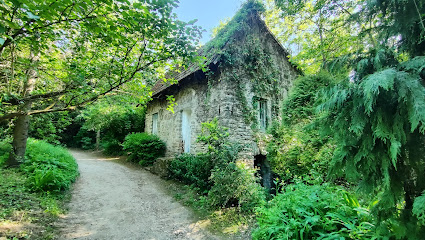
Grădiștea Muncelului-Cioclovina Natural Park
Discover the breathtaking landscapes and rich history of Grădiștea Muncelului-Cioclovina Natural Park, a must-visit national park in Romania.
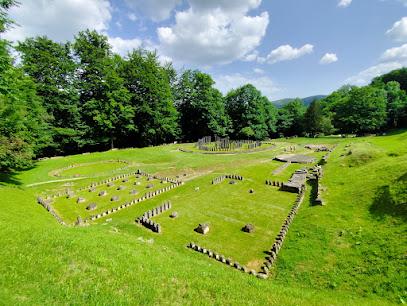
Densuș Church
Explore Densuș Church, an ancient Orthodox gem in Romania, blending rich history, stunning architecture, and serene landscapes for an unforgettable experience.
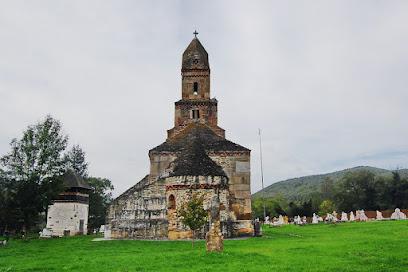
Statue of Decebal
Discover the Statue of Decebal, a monumental tribute to Dacian history in Deva, Romania, surrounded by breathtaking landscapes and rich cultural heritage.
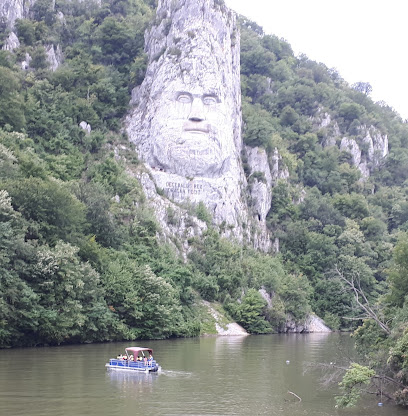
The Museum of Dacian and Roman Civilisation
Explore the captivating history of Dacia and Rome at The Museum of Dacian and Roman Civilisation, a treasure trove of ancient artifacts and culture.
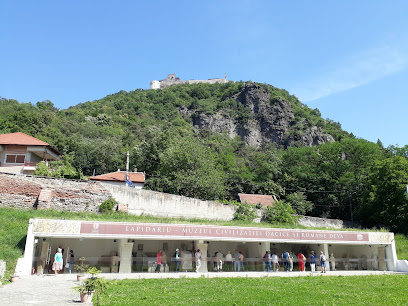
Zoo Bejan
Explore Zoo Bejan in Deva, a family-friendly destination showcasing a diverse range of wildlife and dedicated to conservation and education.
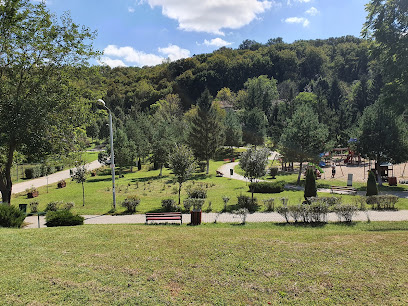
Arras Square
Explore the lush landscapes and vibrant atmosphere of Arras Square, Deva's serene park that invites relaxation and cultural experiences.
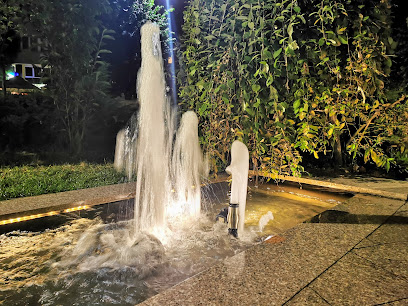
Fântâna arteziană
Discover the serene beauty of Fântâna Arteziană in Deva, Romania, where lush gardens and tranquil waters create a perfect escape for every traveler.
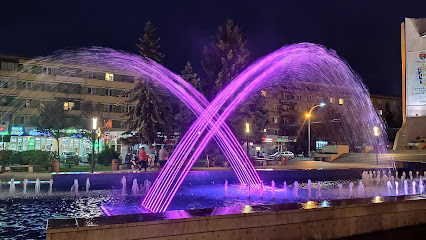
Bejan Park
Discover the natural beauty and tranquil atmosphere of Bejan Park in Deva, Romania – a perfect destination for relaxation and outdoor activities.
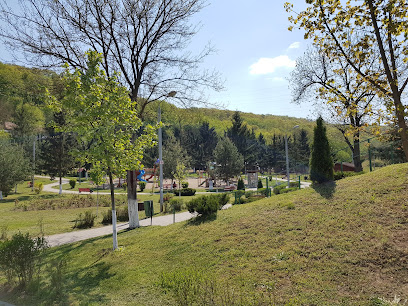
Vaporaș Șoimuș
Experience the stunning natural beauty and rich cultural heritage of Vaporaș Șoimuș, a must-visit tourist attraction in Romania.
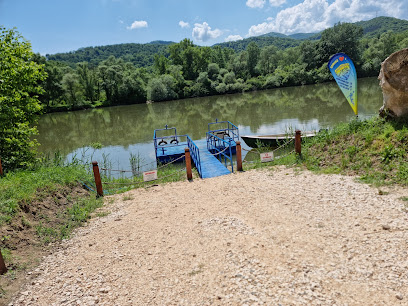
Statue of Trajan
Discover the Statue of Trajan in Deva, Romania—a majestic tribute to Roman history with stunning views and rich cultural experiences.
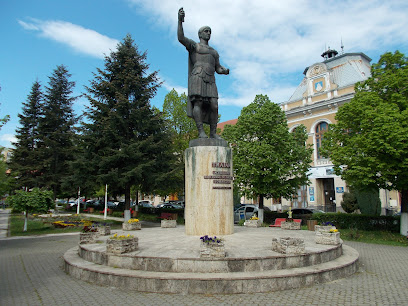
Essential places to dine
McDonald's
Experience fast food bliss at McDonald's Deva – where delicious meals meet convenience for every traveler.
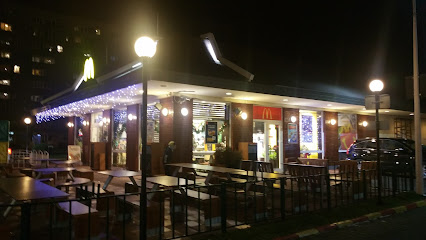
Grizzly Restaurant
Experience the flavors of Romania at Grizzly Restaurant in Deva - where local cuisine meets international flair.
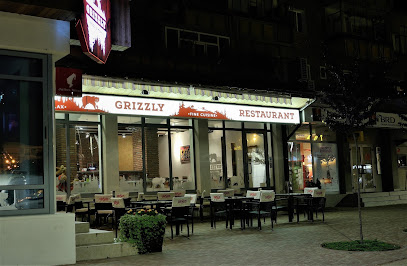
Restaurant Perla
Discover Deva's vibrant culinary scene at Restaurant Perla - where delicious flavors meet live music in an unforgettable setting.
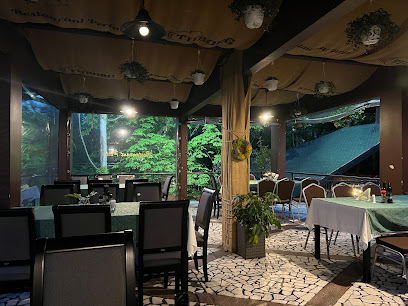
BoRD13
Experience the exquisite flavors of Romania at BoRD13 in Deva - where culinary art meets local tradition.
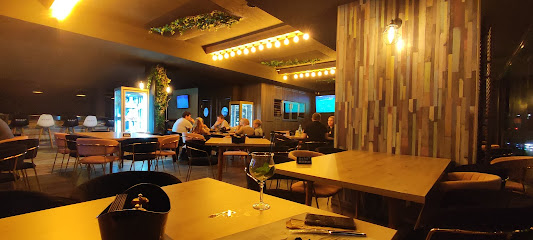
Pizzeria Casa Rustica
Discover the flavors of Italy at Pizzeria Casa Rustica in Deva – where delicious pizza meets warm hospitality.
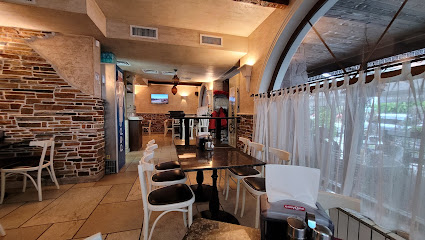
Pensiunea Play
Discover the perfect blend of culinary delights and comfortable lodging at Pensiunea Play in Deva – a must-visit destination for every traveler.
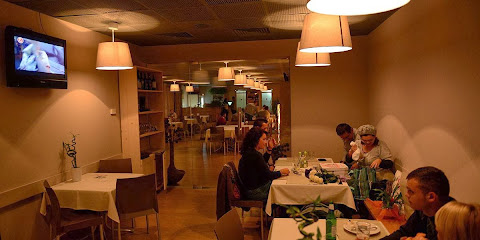
Pizzeria Veneția
Experience the best of Italian cuisine at Pizzeria Veneția in Deva – where every slice tells a story.
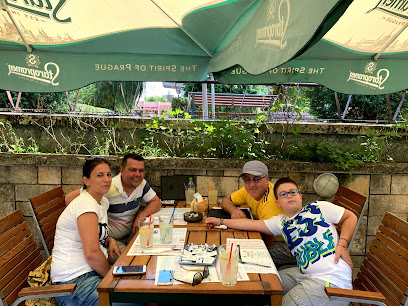
Restaurant Cocoșul de Aur Deva
Discover exquisite flavors at Restaurant Cocoșul de Aur Deva - where tradition meets modern culinary excellence in a welcoming atmosphere.
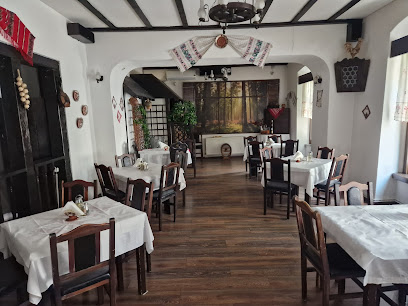
Castelo Restaurant
Experience exquisite dining at Castelo Restaurant in Hunedoara - where local flavors meet international cuisine.
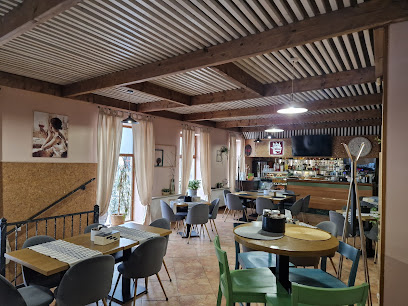
Restaurant Capriccio
Experience culinary excellence at Restaurant Capriccio in Deva—where local flavors meet international cuisine in a cozy setting.
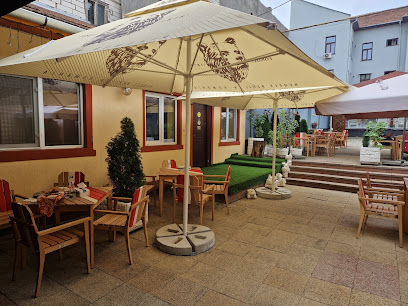
Capone
Discover Capone in Deva: where traditional Romanian flavors meet modern culinary artistry for an unforgettable dining experience.
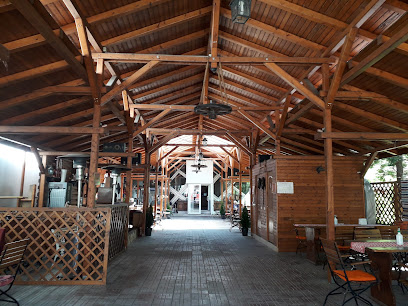
Spartan
Discover culinary delights at Spartan in Deva - where authentic Romanian cuisine meets warm hospitality.
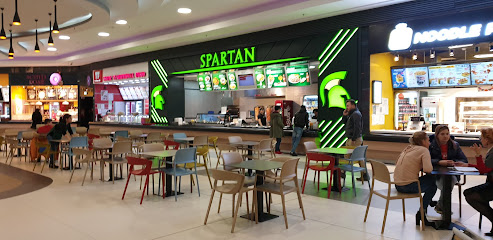
Pizza De La Casa
Discover authentic Italian flavors at Pizza De La Casa in Deva - where every slice tells a story.
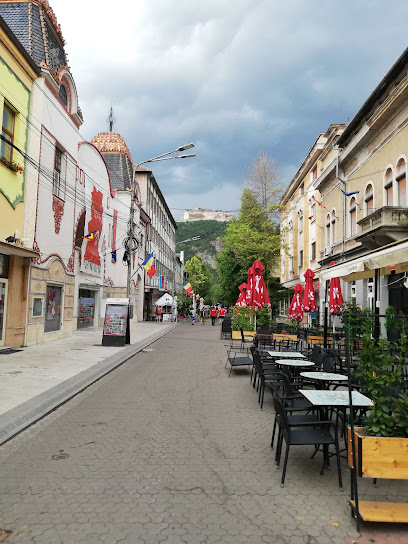
Restaurant Dunărea
Experience the best of Romanian cuisine at Restaurant Dunărea in Deva – where tradition meets taste amid stunning views.
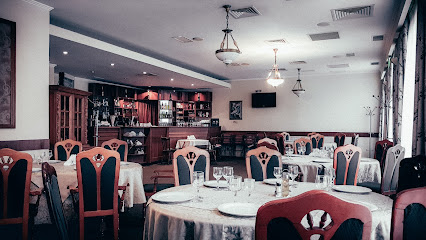
Casina
Discover Casina in Deva: where exquisite cuisine meets charming ambiance for an unforgettable dining experience.
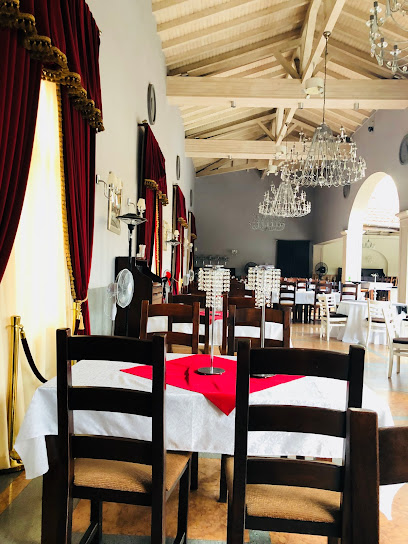
Markets, malls and hidden boutiques
Shopping City Deva
Experience a shopping paradise at Shopping City Deva, where variety meets convenience in a vibrant atmosphere perfect for tourists.
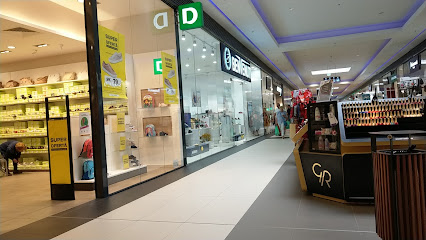
Auchan
Explore Auchan in Deva - a hypermarket offering local delights, essentials, and a pleasant shopping atmosphere during your Romanian adventure.
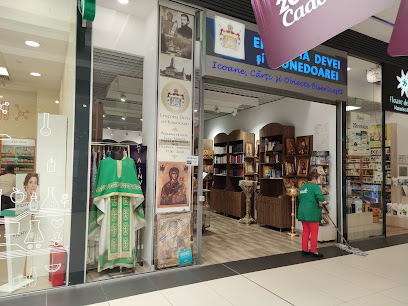
Deva Mall
Discover Deva Mall - your ultimate shopping destination in Deva, Romania, where fashion meets fun and culinary delights await.
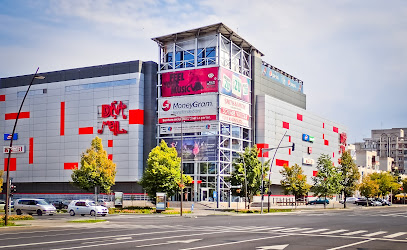
Ulpia Shopping Center
Discover a diverse shopping experience at Ulpia Shopping Center in Deva, featuring trendy stores, delightful dining, and exciting entertainment for all ages.
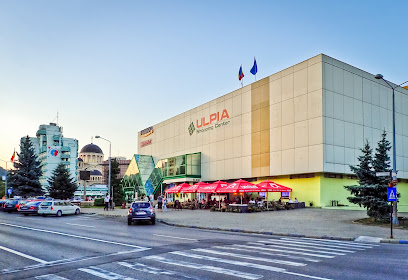
Brico Depot
Discover Brico Depot in Deva for all your home improvement needs, with a vast selection of tools, materials, and expert advice at your fingertips.
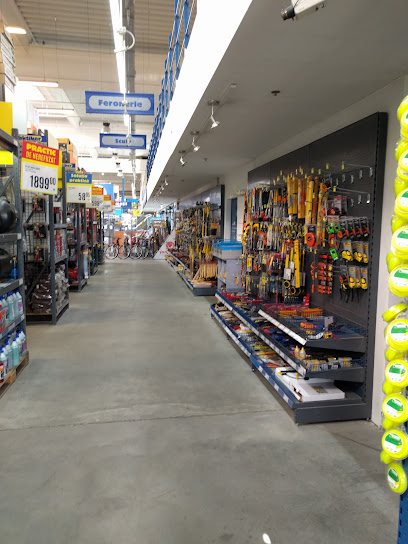
Decathlon
Explore Decathlon in Deva for unbeatable sporting goods, apparel, and accessories tailored for every athlete and outdoor enthusiast.
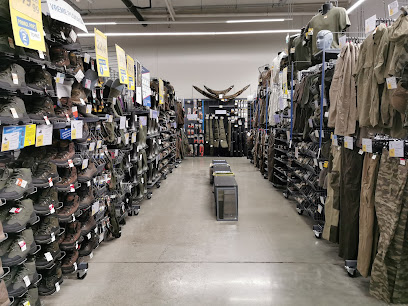
H&M
Explore the vibrant fashion offerings at H&M in Deva, where stylish clothing meets affordability for the whole family.
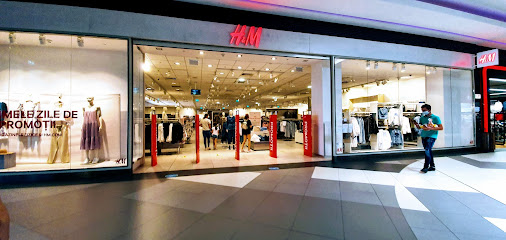
Hervis Deva Shopping City
Hervis Deva Shopping City: The ultimate destination for sporting goods in Deva, Romania, featuring top brands and a wide selection for all sports enthusiasts.
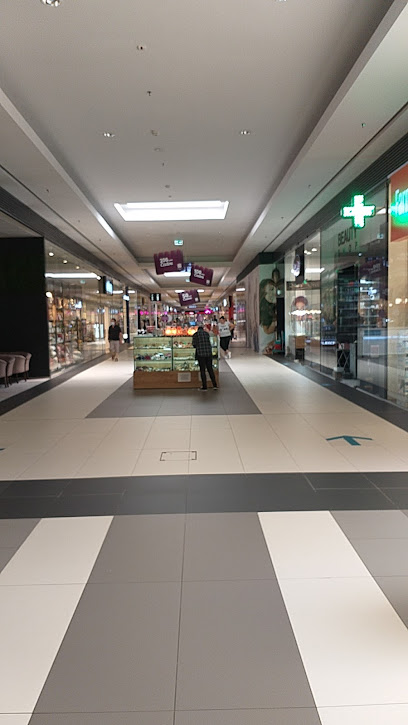
Orange Shop Deva
Discover the latest mobile technology and reliable services at Orange Shop Deva, your essential stop for connectivity during your travels.
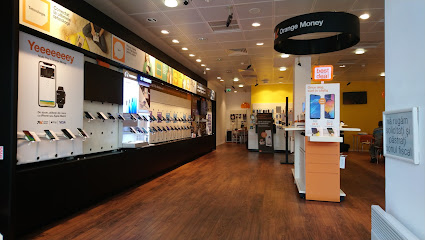
TigaraEgo Deva | Vape Store | Tigari Electronice
Explore the vibrant world of vaping at TigaraEgo Deva - where quality meets community in the heart of Romania.
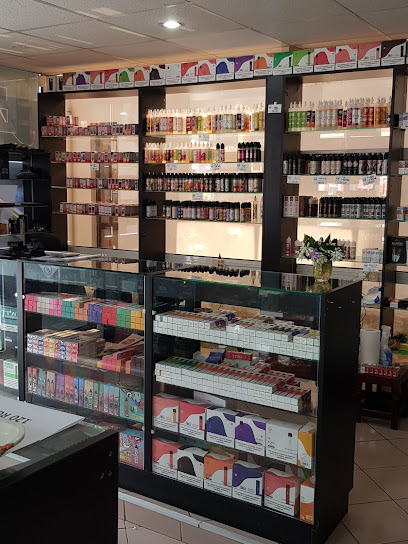
Zoo Center Deva
Explore a vibrant pet store in Deva, Romania, featuring a delightful range of pets, supplies, and expert advice for animal lovers.
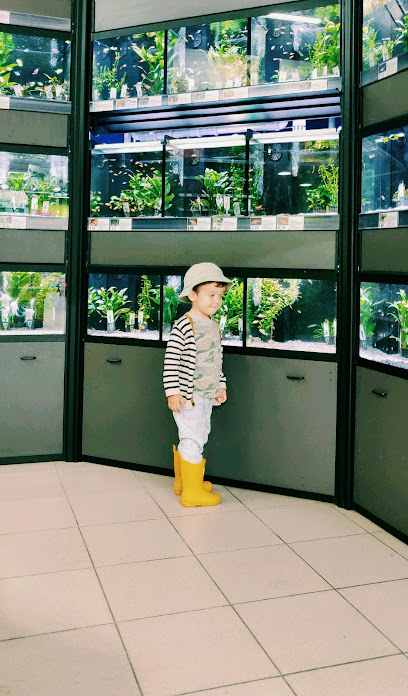
Escudo
Discover the latest in men's fashion at Escudo Shopping City, Deva's premier destination for stylish clothing and exceptional service.
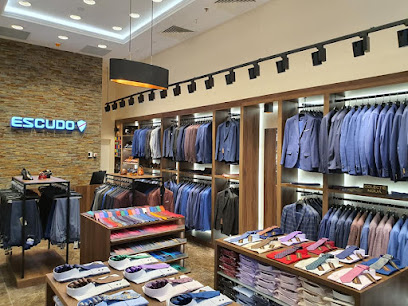
Resale shop deva
Explore Resale Shop Deva for unique, pre-loved clothing that tells a story while promoting sustainable fashion in the heart of Romania.
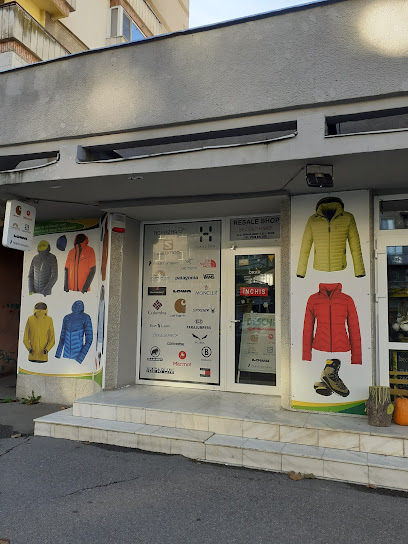
Alexim Light Design - Corpuri Iluminat
Discover exquisite lighting solutions at Alexim Light Design in Deva, offering a blend of modern and classic styles for every taste.
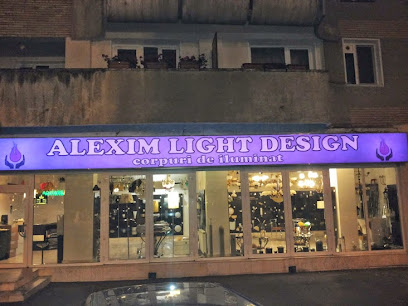
Nobila Casa
Explore Nobila Casa in Deva for exquisite home goods and stylish decor, perfect for adding a touch of elegance to your living space.
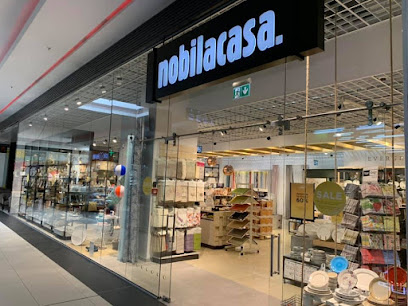
Essential bars & hidden hideouts
BoRD13
Experience the best of Deva's culinary scene at BoRD13, where traditional flavors meet modern dining in a cozy atmosphere.
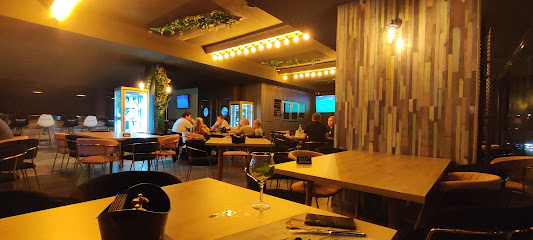
Fischer's Pub
Discover the vibrant ambiance and delicious cuisine at Fischer's Pub, a top destination for tourists in Deva, Romania.
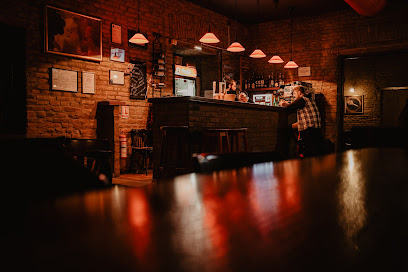
Cafe Imperial
Discover Cafe Imperial in Deva - a cozy lounge and café offering delicious beverages and a welcoming atmosphere for every traveler.
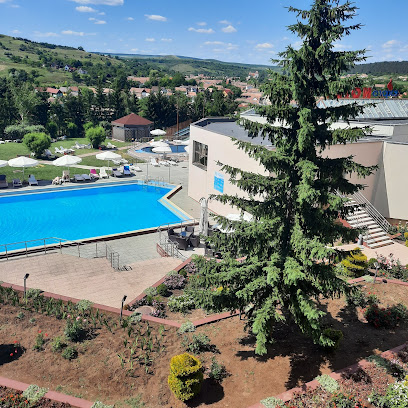
Akkademia de Bere
Experience the charm of Akkademia de Bere, a cozy lounge in Deva offering a delightful selection of beverages and a warm ambiance for relaxation.
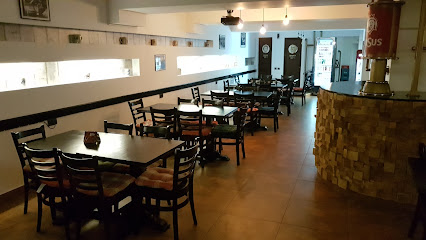
Luciano
Experience the vibrant nightlife of Deva at Luciano, a lively bar offering delightful drinks and a welcoming atmosphere.
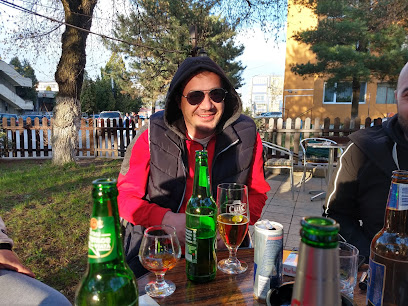
Leo Lounge & Bar
Experience the vibrant atmosphere of Leo Lounge & Bar in Deva, where exceptional drinks and a lively social scene await.
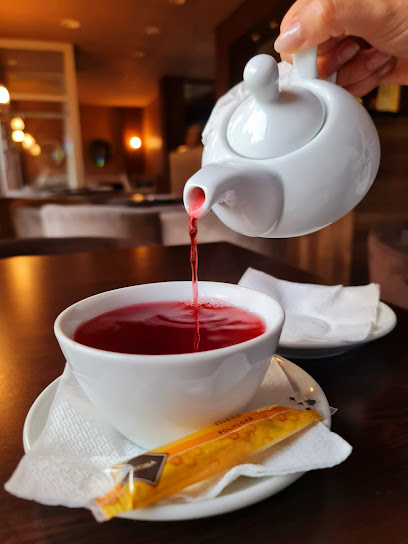
YES Public House
Discover Deva's YES Public House, where delightful drinks and a vibrant atmosphere await every visitor.
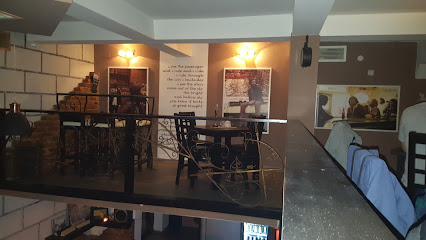
Cotton Cafe & Shisha
Discover relaxation at Cotton Cafe & Shisha in Deva, where flavorful shisha meets a cozy atmosphere for an unforgettable experience.
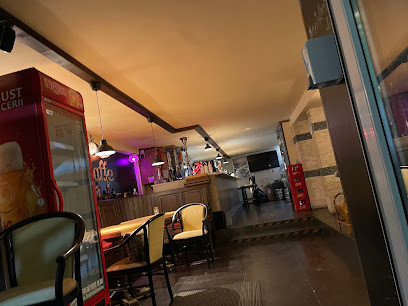
Cozy Corner
Experience vibrant local culture and delightful brews at Cozy Corner Pub in Deva, Romania, a perfect spot for relaxation and socializing.
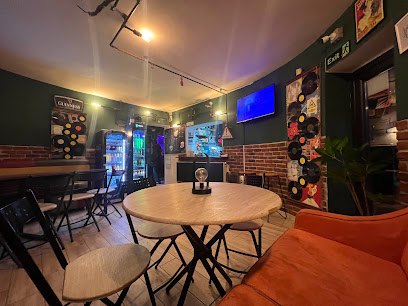
Green Caffe
Discover the charm of Green Caffe in Deva, where superb coffee and lively atmosphere await to enhance your travel experience.
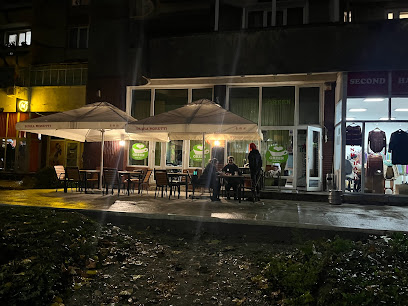
Paradis
Experience the vibrant atmosphere and affordable drinks at Paradis Bar in Deva, the perfect spot for relaxation and socializing.
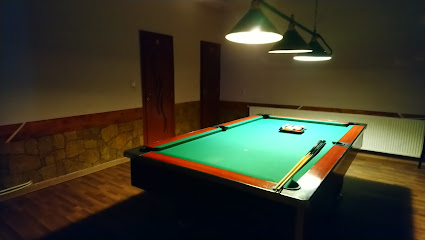
TNT
Experience the vibrant nightlife at TNT Bar, a popular spot in Deva offering a wide selection of drinks and a lively atmosphere for tourists and locals alike.
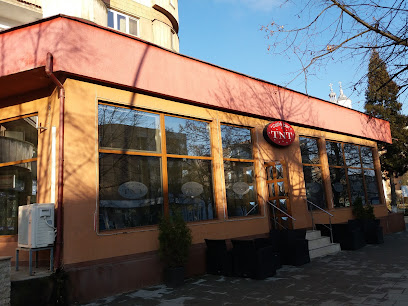
Bar Gina
Experience the warm ambiance and unique local flavors at Bar Gina, the perfect spot to unwind in Deva, Romania.
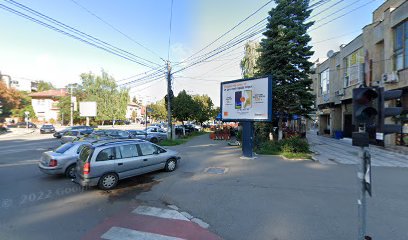
Terasa bar la Monu
Discover the charm of Terasa Bar la Monu in Deva, where scenic views meet delightful drinks in a welcoming atmosphere.
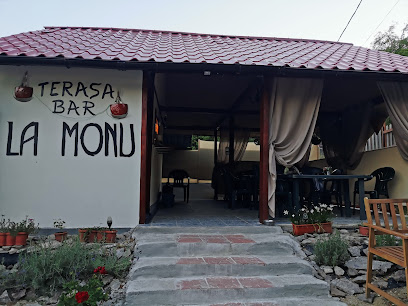
Local Phrases
-
- HelloSalut
[sah-loot] - GoodbyeLa revedere
[lah reh-veh-deh-reh] - YesDa
[dah] - NoNu
[noo] - Please/You're welcomeTe rog
[teh rohg] - Thank youMultumesc
[mool-too-mesk] - Excuse me/SorryScuza-ma
[skoozah-mah] - How are you?Ce mai faci?
[cheh my fahch?] - Fine. And you?Bine. Si tu?
[bee-neh. see too?] - Do you speak English?Vorbesti engleza?
[vor-behs-tee eng-leh-zah?] - I don't understandNu inteleg
[noo een-teh-leg]
- HelloSalut
-
- I'd like to see the menu, pleaseAs dori sa vad meniul, va rog
[ahs doh-ree sah vahd meh-nyool, vah rohg] - I don't eat meatNu mananc carne
[noo mah-nahnk kahr-neh] - Cheers!Noroc!
[noh-rohk] - I would like to pay, pleaseAs dori sa platesc, va rog
[ahs doh-ree sah plah-tesk, vah rohg]
- I'd like to see the menu, pleaseAs dori sa vad meniul, va rog
-
- Help!Ajutor!
[ah-yoo-tor] - Go away!Du-te!
[doo-teh] - Call the Police!Suni la politie!
[soo-ne lah po-lee-tsyeh] - Call a doctor!Suni la doctor!
[soo-ne lah dok-tohr] - I'm lostM-am pierdut
[mahm pyehr-dooh-t] - I'm illSunt bolnav
[soont bohl-nav]
- Help!Ajutor!
-
- I'd like to buy...As dori sa cumpar...
[ahs doh-ree sah koom-pahr] - I'm just lookingDoar ma uit
[doh-ahr mah ooit] - How much is it?Cat costa?
[kaht kohs-tah?] - That's too expensiveEste prea scump
[ehs-teh preh-ah skoomp] - Can you lower the price?Puteti sa scadeti pretul?
[poo-teh-tee sah skah-detee preh-tool]
- I'd like to buy...As dori sa cumpar...
-
- What time is it?Cata e ora?
[kahtah eh oh-rah?] - It's one o'clockEste ora unu
[ehs-teh oh-rah oon-oo] - Half past (10)O jumatate (10)
[oh joo-mah-tah-teh (dheh-shet)] - MorningDimineata
[dee-mee-neh-ah-tah] - AfternoonDupa-amiaza
[doo-pah ah-mee-ah-zah] - EveningSeara
[seh-ah-rah] - YesterdayIeri
[yeh-ree] - TodayAzi
[ahz] - TomorrowMaine
[mah-ee-neh] - 1Unu
[oo-noo] - 2Doi
[doy] - 3Trei
[tray] - 4Patru
[paht-roo] - 5Cinci
[cheen-chee] - 6Sase
[sah-seh] - 7Sapte
[sahp-teh] - 8Opt
[ohpt] - 9Noua
[noo-wah] - 10Zece
[zeh-cheh]
- What time is it?Cata e ora?
-
- Where's a/the...?Unde este unul/o...
[oon-deh ehs-teh oon-ool/oh] - What's the address?Care este adresa?
[kah-reh ehs-teh ah-dreh-sah?] - Can you show me (on the map)?Puteti sa ma aratati (pe harta)?
[poo-teh-tee sah mah ah-rah-taht (peh hahr-tah)] - When's the next (bus)?Cand este urmatorul (autobuz)?
[kahnd ehs-teh oor-mah-tohr-ool (ow-toh-boo-z)] - A ticket (to ....)Un bilet (catre ....)
[oon bee-let (kaht-reh)]
- Where's a/the...?Unde este unul/o...
History of Deva
-
Deva's history traces back to ancient times, with archaeological evidence indicating settlements from the Neolithic era. The region was once part of Dacia, an ancient kingdom that was later conquered by the Roman Empire. This early period laid the foundation for Deva's rich cultural heritage.
-
During the Middle Ages, Deva became strategically significant due to its location. The Deva Fortress, built in the 13th century atop Cetatea Hill, served as a crucial defensive structure against invasions. The fortress's ruins still stand today, offering a glimpse into the military architecture and turbulent history of the region.
-
In the 15th century, Deva came under the influence of the Hunyadi family, one of Transylvania's most powerful noble families. John Hunyadi, a key figure in the fight against the Ottoman Empire, used Deva as a military base. His legacy is still celebrated, and his impact on the region's history is profound.
-
Deva experienced significant changes during the Austro-Hungarian rule in the 18th and 19th centuries. This period saw the development of infrastructure, including roads and administrative buildings. The cultural influence of both Austria and Hungary left a lasting mark on Deva's architecture and traditions.
-
The 20th century brought modernization and industrial growth to Deva. After World War I, Deva became part of Romania, undergoing significant social and economic changes. The city expanded, and new institutions, including schools and hospitals, were established, shaping the modern character of Deva.
-
In recent decades, Deva has seen a cultural revival, emphasizing its historical and cultural heritage. Festivals, museums, and cultural events celebrate the city's diverse history. The Deva Art Museum and the annual Medieval Festival are just a few examples of how the city honors its past while embracing the present.
Deva Essentials
-
Deva is located in the Hunedoara County of Romania. The nearest international airport is Traian Vuia International Airport in Timișoara, which is about 150 kilometers away. From Timișoara, you can take a train or a bus to Deva. The train journey typically takes around 2 to 3 hours, while buses might take a bit longer. Alternatively, you can rent a car for a more flexible travel experience.
-
Deva is well connected by public transport. The city has a reliable network of buses that can take you to most attractions and neighborhoods. Taxis are also readily available and relatively inexpensive. For those who prefer a bit more freedom, renting a car is a convenient option. Deva's city center is quite walkable, and many of its main sights are within walking distance of each other.
-
The official currency in Romania is the Romanian Leu (RON). Credit and debit cards are widely accepted in hotels, restaurants, and shops, but it is advisable to carry some cash for smaller establishments and markets. ATMs are readily available throughout Deva, so withdrawing cash should not be a problem.
-
Deva is generally a safe city for tourists. However, as with any travel destination, it's important to stay vigilant. Avoid walking alone at night in poorly lit areas and keep an eye on your belongings in crowded places. There are no specific high-crime neighborhoods targeting tourists, but standard precautions should always be taken.
-
In case of an emergency, dial 112 for immediate assistance. Deva has several medical facilities, including the Deva Emergency County Hospital. It is recommended to have travel insurance that covers medical emergencies. Pharmacies are available throughout the city for minor health issues and over-the-counter medications.
-
Fashion: Do dress modestly when visiting religious sites; casual wear is acceptable in most other places. Religion: Do respect local customs and traditions, especially in churches and monasteries. Public Transport: Do validate your ticket when using public transport. Don't eat or drink on public buses. Greetings: Do greet people with a handshake; a friendly 'Bună ziua' (Good day) is a nice touch. Eating & Drinking: Do try local dishes and wines; Romanian hospitality is generous, so don't refuse food or drink offerings.
-
To experience Deva like a local, visit the local markets such as Piața Centrală, where you can buy fresh produce and traditional Romanian goods. Take a stroll up to Deva Fortress for panoramic views of the city. Engage with locals; they are often very friendly and willing to share stories about Deva's rich history and culture. Don't miss the Corvin Castle, one of the most impressive Gothic-style castles in Romania, located just a short drive away in Hunedoara.
Trending Landmark in Deva
-
Castelul Corvinilor (Corvins' Castle)
-
The Fortress of Deva
-
Citadel Park
-
Arboretum Park Simeria
-
Aqualand
-
Ascensor Cetatea Devei
-
Grizzly Restaurant
-
Statue of Decebal
-
Conacul Archia
-
The Museum of Dacian and Roman Civilisation
-
Măgura Uroiului
-
Casina
-
Art Theater Deva
-
Villa Brussels
-
Aurel Vlaicu Memorial House
Nearby Cities to Deva
-
Things To Do in Târgu Jiu
-
Things To Do in Cluj-Napoca
-
Things To Do in Arad
-
Things To Do in Drobeta-Turnu Severin
-
Things To Do in Râmnicu Vâlcea
-
Things To Do in Sighisoara
-
Things To Do in Craiova
-
Things To Do in Pitesti
-
Things To Do in Smederevo
-
Things To Do in Baia Mare
-
Things To Do in Pančevo
-
Things To Do in Brasov
-
Things To Do in Debrecen
-
Things To Do in Satu Mare
-
Things To Do in Szeged








